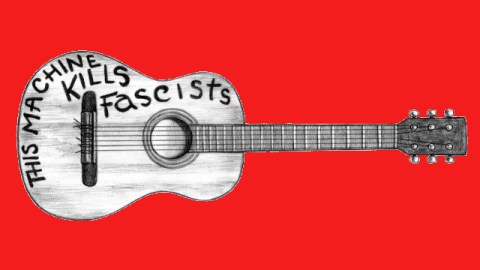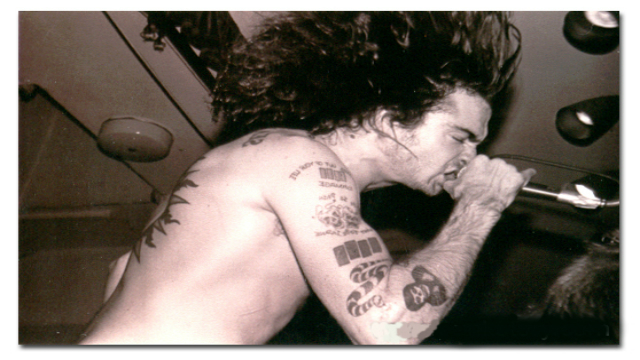Henry Rollins: Music is Powerful, but it Can’t Stop a War.

I hate a song that makes you think that you are not any good.
I hate a song that makes you think that you are just born to lose. Bound to lose. No good to nobody. No good for nothing. Because you are too old or too young or too fat or too slim too ugly or too this or too that. Songs that run you down or poke fun at you on account of your bad luck or hard traveling.
I am out to fight those songs to my very last breath of air and my last drop of blood. I am out to sing songs that will prove to you that this is your world and that if it has hit you pretty hard and knocked you for a dozen loops, no matter what color, what size you are, how you are built, I am out to sing the songs that make you take pride in yourself and in your work.
And the songs that I sing are made up for the most part by all sorts of folks just about like you.
– Woody Guthrie
There’s a great scene in Woody Guthrie’s book Bound for Glory in which he remembers a train hopping episode that happened in his twenties. In those days, he was hopping trains regularly, traveling the country, and completely broke most of the time – as was everybody else a few years into the Great Depression.
Anyway, on one particular train, a white guy started harassing a black guy – beating him up and cursing at him for being black. Woody intervened – said a few words, then, as I recall, threw the white guy off the train. I was maybe 25 when I read the book, and completely floored by Guthrie’s instinctive, immediate response. In the history books I’d read, you didn’t encounter many white men in 1933 who would step up as Woody had done. Also, I hadn’t expected this kind of rough-and-ready action from nice ol’ guitar playing Woody.
This is a long-winded intro – on the 100th anniversary of Woody Guthrie’s birth – to something writer and musician Henry Rollins told us recently: that music’s power extends far, but only so far, and that this is maybe especially so in the age of super pop-stardom. Not even Woody Guthrie, Bob Dylan, or Bob Marley could overthrow governments or end wars with their songs. Today, says Rollins, maybe the best rock stars can do is to get their legions of fans to support a worthy cause.
Maybe so – but, as Rollins points out, what music can do is plant a seed – of pretty much whatever the musician wants it to: hate, love, hope, despair. It’s up to musicians to create and fans to support the music that supports what’s best in us, then to act – individually and collectively – on the change it inspires. In this sense, the long-term impact of music, for good or ill, may be much greater than we know, and much more difficult to trace.
Henry Rollins on the power of music, and its limitations.
–
Follow Jason Gots (@jgots) on Twitter
Image credit: Shutterstock.com





